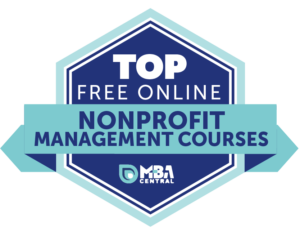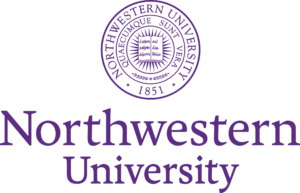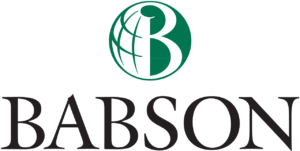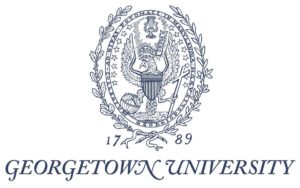
The difference between nonprofit and for-profit organizations is that while for-profits are all about the bottom line, nonprofits focus their efforts toward a cause. While this is a big difference, they have many similarities as well. Nonprofit managers need to understand organizational development, accounting, project management, and marketing. Nonprofits and for-profit organizations can be small ventures or complex multi-million dollar operations, and both need competent management for sustainability. One easy way to pursue education and proficiency as a manager in the nonprofit world is by pursuing free online nonprofit management courses.
Nonprofit Management
Several stark differences set nonprofit management apart from traditional for-profit management. Arkansas State University published an article that highlights many of the factors that make nonprofit management unique. As mentioned previously, nonprofits are not solely focused on profit. It is not, necessarily, that the organization isn’t allowed to make profits, but these profits may not be placed in anyone’s pockets. Everything a nonprofit organization makes needs to go toward the furtherance of their causes.
Managers of nonprofits must be cognizant of special legal requirements necessary to keep up their respective organizations’ tax-exempt status. The Stanford Social Innovation Review put forth an article that speaks to how the spread of knowledge across an organization is critical to making the organization better. One area where this is extremely pertinent is tax law. Tax laws regularly change and receive updates that nonprofit managers must keep up with to remain in compliance as a nonprofit. Since these organizations often partner up with government agencies, nonprofit managers must be savvy government contract negotiators, intimately familiar with fulfilling all parts of a contract.
And mainly, the efforts of a nonprofit manager focuses around people. A nonprofit manager must be knowledgeable in recruiting volunteers, telling their mission’s story to donors, and reaching out to those that benefit from the organization.
Many nonprofit organizations operate on a shoestring budget and notoriously work long hours. This is why free online nonprofit management courses can be a great opportunity. For the managers wanting to further their expertise and not break the bank, check out our list of free online nonprofit management courses.
Methodology
The methodology used to determine which free online nonprofit profit management courses are most appropriate for this list consists of locating free classes on leading MOOC websites in a broad range of nonprofit management topics. The websites utilized include Coursera and edX. Course selection was further honed based upon affiliation with some of the nation’s best business schools.
#1 Communication – Northwestern University
Leadership Communication for Maximum Impact: Storytelling, a free online communication course, provides a unique method of relating management communication to telling a story. The course identifies communication as an essential aspect of leadership. Communication aids in inspiring those around a manager, including customers, investors, and communities. This free online management course teaches a manager the art of crafting a story that engenders trust and confidence within those around him. This story accurately illustrates who the manager is and makes him stand out as someone who excels at steering the ship. A Forbes article demonstrates the importance of communication with employees very simply. Communication is a foundational aspect of building rapport between a manager and his employees. Rapport leads to trust. Increased trust leads to better employee engagement, and this increased engagement makes an employee more productive. Following the logic, as it relates to employees, effective communication leads to more productive employees. Nonprofits do not typically have massive armies of staff to deploy toward marketing and other efforts. According to Purdue University, this makes communication efforts even more critical for NPOs. Communication is vital and must be clear. With no products to sell, communication efforts are responsible for bringing in life-giving donations and generating interest in a nonprofit’s cause.
Northwestern University offers one of the best free online nonprofit management courses through Coursera. This Higher Learning Commission accredited University is home to the Kellogg School of Management. The AACSB accredited Kellogg School of Management offers several paths that students may follow in pursuit of an MBA, along with many executive education opportunities. Executives will pursue courses that cover topics in general management, leadership, governance, and various other areas. Additionally, Kellogg, rated #3 by U.S. News & World Report, includes the Center for Nonprofit Management, which focuses on educating and improving nonprofit executives and board members’ effectiveness. Through Kellogg, programs cover Fundraising & Marketing, Leadership Strategy, Talent Management, and School Leadership. Individuals can earn an Executive Scholar Certificate in Nonprofit Management by completing four programs within the Center for Nonprofit Management and following them up with a capstone course.
Course Name: Leadership Communication for Maximum Impact: Storytelling
Business School: Kellogg School of Management
#2 Community Engagement – University of Colorado Boulder
A beginner level, free online nonprofit management course titled Strategies for Effective Engagement, teaches students how to examine challenges from different points-of-view. Students learn how to engage the community through data collection and conducting quick, ethical assessments. The next phase is system mapping and analysis, followed by conducting interviews and surveys. Different techniques, such as focus group interviews, individual interviews, and surveys, make up some of the tools utilized. This free online nonprofit management course requires approximately ten hours to complete and is part of the Leading Sustainable Community Transformation specialization. According to Penn State, there are many different definitions of community engagement, depending on which group is attempting to define it. Penn attempts to break down the concept to its most basic terms by stating that “community engagement seeks to engage the community better to achieve long-term and sustainable outcomes, processes, relationships, discourse, decision-making, or implementation.” Strategies that do this effectively are ones that embrace the local context where this engagement takes place. Engagement requires that all community members are part of the process, receive all the details, and be empowered. This free online nonprofit management course on community engagement offers an integral element to the NPO. A Forbes article states that active participation in a local area allows for greater recognition of an organization. It also provides a crucial aspect of meeting the local people who will ideally constitute a large portion of the volunteer and donor base.
The University of Colorado Boulder offers this free online nonprofit management class. The University’s Leeds School of Business, accredited by the AACSB, offers a full-time and evening MBA program, various master’s programs, and a Ph.D. program. Additionally, professionals will choose from executive programs that include corporate social responsibility, diversity and inclusion, and executive leadership. U.S. News recognizes the Leeds School as the #70 business school. Host to a variety of free online courses on Coursera, the University of Colorado Boulder is a rich source of free content. Students have many classes to choose from other than the free online nonprofit management courses. Options include Business Writing, Communicating Business Analytics Results, Digital Advertising Strategy, and Teamwork Skills: Communicating Effectively in Groups.
Course Name: Strategies for Effective Engagement
Business School: Leeds School of Business
#3 Corporate Social Responsibility – Babson College
This third free online nonprofit management course is titled From Corporate Social Responsibility to Corporate Social Innovation. The course combines real-world guidance from executives with companies like Campbell’s, Dunkin Brands, and Verizon with analysis and application. The course teaches the steps required and the skills and knowledge that are part of social innovation. Additionally, students are made aware of the main challenges that companies face in the pursuit of CSR efforts. CSR’s boundaries surpass the more traditional outlook as students look more toward social innovation, moving beyond what is currently known as Corporate Social Responsibility. The Harvard Business Review is somewhat critical of CSR efforts in its article titled The Truth About CSR. The advice given to organizations within the article is that company CSR strategies be more focused and clear. These efforts need to focus primarily on three areas that sometimes overlap. The first area is philanthropy, such as monetary donations and involvement in community initiatives. The second area is the improvement of operational effectiveness. The goal here is to use existing business models to put forth social and environmental benefits. These methods will not always result in more revenue or efficiency. The third area is transforming the business model. This step creates new forms of business that improve business performance while also demonstrating environmental and social results. Georgetown University’s Center for Social Impact Communication hosts an article about Nonprofit Social Responsibility. While the author concedes that most research on CSRs focuses on corporations, there are many potential benefits to Nonprofits. These benefits include improved recognition, better public perception, a more significant number of volunteers, positive word of mouth, and the ability to influence politics.
Babson College offers this free online nonprofit management course. Babson’s F.W. Olin Graduate School of Business is both accredited by the AACSB and recognized by U.S. News as #72 business school. Additionally, their online MBA is recognized by U.S. News as #31. Babson offers a variety of MBA options and additional master’s degrees. Babson offers several more free online nonprofit classes and other business classes through the edX platform.
Course Name: From Corporate Social Responsibility to Corporate Social Innovation
Business School: F.W. Olin Graduate School of Business
#4 Environmental Sustainability – University of Washington
Sustainability, Resilience, and Society is one of the best free online nonprofit management courses for managers. The class requires a commitment of two to three hours per week for five weeks and explains the concept of sustainability. It explains the impact humans have on the environment, how governments have responded, and what the future holds. Students in this free online nonprofit management course will analyze case studies conducted in different settings and ultimately attempt to translate theory into real-world impacts. The question of what is environmental sustainability is perhaps more complicated than one might imagine. John Morelli of the Rochester Institute of Technology writes a ten-page paper titled Environmental Sustainability: A Definition for Environmental Professionals. After offering several introductory concepts, he arrives at a definition about halfway through the piece. He defines environmental sustainability as “a condition of balance, resilience, and interconnectedness that allows human society to satisfy its needs while neither exceeding the capacity of its supporting ecosystems to continue to regenerate the services necessary to meet those needs nor by our actions diminishing biological diversity.” Although geared toward the environmental aspect of the concept, this definition applies to other areas such as industry. Steven Cohen writes an article that speaks to the importance of sustainability management. He calls it the future of management and the next phase of innovation. He bases this idea that many organizations worldwide know that they need to be more in balance with the environment, but they don’t know how to pull it off. This lack of expertise is where opportunities such as a free online nonprofit management class are useful tools.
The University of Washington makes this free online nonprofit management class available through edX. The University is home to the Michael G. Foster School of Business, an AACSB accredited business school. U.S. News rates the Foster school at #20, and among the business school’s offerings, students will find many iterations of the MBA, entrepreneurship classes, and professional certificate programs. In addition to its free online nonprofit management courses, the University of Washington offers various other free courses on topics that include business, leadership, and technology.
Course Name: Sustainability, Resilience, and Society
Business School: Michael G. Foster School of Business
#5 Ethics – Georgetown University
Individuals desiring to understand ethics better are well-served through a free online nonprofit management course titled Ethical Decision-Making: Cultural and Environmental Impact. This course describes how global corporations cause cultural changes and impacts on the environment. The course additionally describes how marketing techniques are utilized to mislead consumers in foreign countries. Students are supplied with an ethical framework for examining these types of situations and determining when marketing practices should be lauded and when they should be criticized. Consisting of three to five hours of effort per week, this free online nonprofit management course lasts four weeks. Santa Clara University hosts an article that attempts to explain what ethical decision-making is and why it is crucial. Any time one makes a decision and asks himself which path is the right one, he uses ethics to guide himself. According to Santa Clara’s Markkula Center for Applied Ethics, the first step is to identify the ethical issue, gather the facts, and ponder the choices. One might ask himself questions that include the following. Which choice leads to the most good and causes the least harm? Which one of these paths would a virtuous person choose? Charter College offers three reasons that ethics are crucial in the business world. Ethical companies have a better reputation. A second benefit is that an ethical organization is a place where the best employees want to stay, and morale is better. A third reason is that when good business ethics are followed, the risk is limited. There’s less likelihood of fines and legal issues.
Georgetown University offers this free online nonprofit management course. Georgetown is accredited by the MSCHE and hosts the McDonough School of Business. This business school is highly rated by U.S. News & World Report as #25. Among a variety of graduate degrees offered through McDonough are MBAs, International Policy, and Leadership. Founded in 1789, Georgetown University is located in the heart of the country in Washington, D.C. The access to key decision-makers is unrivaled, and more than 190,000 alumni are found throughout the world.
Course Name: Ethical Decision-Making: Cultural and Environmental Impact
Business School: McDonough School of Business
#6 Fundraising – University of California, Davis
Fundraising and Development Foundations is a free online nonprofit management course. It is the first class in a four-part specialization series and requires 16 hours over four weeks. This class begins by familiarizing students with the basic vocabulary and ideas associated with fundraising. It moves from there to donor relations and how to plan out an ideal solicitation. Additionally, this free online nonprofit management course delves into careers and challenges that contemporary fundraising managers confront. There is also practical guidance for writing products and creating a portfolio. Nonprofit Quarterly (NPQ) describes fundraising as essential to nonprofits. It is a primary revenue stream that aids a nonprofit in carrying out its mission. However, there is much more to fundraising than just collecting checks. It is also about relationship building, support, and appealing to new organizations and individuals. While the importance of fundraising is evident regarding a nonprofit organization, there are challenges beyond merely finding the right donors. A Forbes article puts forth the idea that while charitable giving has an upward trend dollar-wise, the number of actual donors is going the other direction. The article sets forth several alternative revenue ideas for fundraising, aside from just approaching significant donors and individuals. These other sources include Donor-Advised Funds, Foundations and Companies, #Giving Tuesday, and December Giving, which tends to be the largest month for charitable giving.
The University of California Davis is certified by the WASC Senior College and University Commission. UC Davis’s Graduate School of Management is among the top 50 business schools in the country, according to U.S. News, which gives it a ranking of #48. Besides an online MBA and several alternative MBA options, UC Davis offers graduate degrees that include Accounting and Business Analytics. The Graduate School also offers short online executive education programs in Leadership and Strategic Negotiations. Plus, through a partnership with EduMind, students may pursue a series on Excellence in Operations Management. Coursera offers additional free online nonprofit management courses in its fundraising series, including Annual Campaigns: Building a Case for Support, Major and Principal Gifts, and Planned Giving.
Course Name: Fundraising and Development Foundations
Business School: Graduate School of Management
#7 Global Health – Johns Hopkins University
A free online nonprofit management course titled Understanding and Strengthening Health Systems is available on the Coursera platform. This class requires about 14 hours of commitment over four weeks. This class’s primary audience is those who have practical healthcare experience dealing with low and middle-income countries. Students will explore the four primary areas of health systems in global health. The first step is to understand health service organizations. Next, students learn about the World Health Organization’s six building blocks. Then this free online nonprofit management course goes into human resources and increasing capacity. Finally, students learn about how to make health policy and interact with stakeholders. St. George’s University puts forth that global health involves the academic and practical side of medicine viewed from a macro-level perspective and aims to advance health and health care equally throughout the world. The University identifies the WHO as the most well-known entity for promoting global health. Dr. Calum Macpherson, St. George’s vice provost for international program development, describes the University’s One Health One Medicine initiative that aims to advance the cause of global health as “the convergence of human, animal and ecosystem health.” Nonprofits play an important role in global health. According to NYU’s School of Global Public Health, there are gaps where governments overlook or fail to address some areas. The nonprofit sector can fill the void in these areas, including public safety, environmental challenges, and healthcare inequality.
Offered by Johns Hopkins University, this free online nonprofit management class stands among many additional programs available. Besides offering an online MBA, Johns Hopkins’s Carey Business School provides master’s degrees that include finance, marketing, health care management, real estate, and infrastructure. The business school offers an array of executive education opportunities. Many of these are available entirely online such as Essentials of Leadership Coaching, Financial Statement Analysis, and Mastering the Art of Public Speaking. In addition to its free online nonprofit management courses, students can pursue a vast number of classes from Johns Hopkins through Coursera. Categories range from topics such as Psychological First Aid to Measuring and Maximizing Impact of COVID-19 Contact Tracing.
Course Name: Understanding and Strengthening Health Systems
Business School: Carey Business School
#8 Nonprofit Boards – University at Buffalo
The Roles and Responsibilities of Nonprofit Boards of Directors within the Governance Process is a free online nonprofit course that is part two of four courses regarding nonprofit organizations. This five-week class requires approximately 12 hours of commitment. The course’s purpose is to delve into the roles and responsibilities of boards of directors. Although designed around North American culture, essential aspects are likely applicable to other regions of the world. The primary areas covered within this free online nonprofit class include strategic planning, performance assessment, and fundraising. Nonprofit Quarterly states many functions and requirements of a nonprofit board. A board of directors is required of a nonprofit organization to qualify for tax-exempt status and other necessary transactions, such as opening a bank account and filing annual reports. The board represents the public and serves as the organization’s voice regarding legal matters. In most states, a board must be active and fulfill many roles within the organization. Some of these roles and responsibilities include budget approval, writing policies, and keeping records of activities. Board members are responsible for keeping the nonprofit organization on track. Nonprofit organizations provide many services and functions throughout society, and people depend upon them.
The University of Buffalo’s School of Management is accredited through the AACSB. It is recognized by U.S. News & World Report as the #60 business school in the U.S. The School of Management hosts the Center for Leadership and Organizational Effectiveness (CLOE). CLOE offers programs such as Leadership Accelerator, the Leaders on Leadership Speaker Series, and Leadership Connections. Additionally, coaching and customizable programs are part of the CLOE’s offerings. Additional classes within Buffalo’s nonprofit series are available. The first class is titled Introduction to the Nonprofit Sector, Nonprofit Organizations, Nonprofit Leadership and Governance factors that weigh on a board’s effectiveness, and a capstone about managing board change. The second class is the one covered in the paragraph above. The third class is The Factors that Influence the Effectiveness of Boards and the Governance Process. The final course is a Capstone titled Managing Board Change for Higher Levels of Leadership and Governance Effectiveness.
Course Name: The Roles and Responsibilities of Nonprofit Boards of Directors within the Governance Process
Business School: School of Management
#9 Nonprofit Management – University of Maryland, College Park
This free online nonprofit management course is titled The Cycle: Management of Successful Arts and Cultural Organizations. At a couple of hours per week, students can complete this class in six weeks. Students might be apprehensive of this course at first glance as it focuses on art and cultural organizations. However, the concepts that one studies in this free online nonprofit management course are broadly applicable to NPOs in general. Students learn a management theory called the Cycle. Developed to aid nonprofit managers of art and cultural organizations to meet the challenges they face, the Cycle discusses several steps to create a successful NPO. Beginning with mission-driven programming, the Cycle moves to long-term planning, aggressive marketing, cultivating investors and partners, and finally wraps up with how to reinvest the profits with even larger goals the next time. According to a University of North Carolina School of Government article, the nonprofit manager is typically the one who oversees an organization. His primary areas of focus are finances and operations. The nonprofit manager is the captain of the ship. Some of the most critical skills needed for this position are communications and time management. Responsibilities will often include continually evaluating and making changes to business practices, staying current regarding the views of staff and those supporting the organization, structuring board meetings, planning fundraising, and lining up media exposure. Travel is often a large part of the job.
The University of Maryland, College Park, is home to the Robert H. Smith School of Business. This business school is accredited through the AACSB. Additionally, the business school’s recognition by U.S. News & World Report as the #44 business school in the U.S. serves to make it a highly credible source of learning. An online MBA that U.S. News ranks as the 10th best program in the country paves the way for its other MBA paths, such as an Executive MBA in China, and its full-time MBA. Other than its free online nonprofit management courses, the University of Maryland offers many additional classes through Coursera. Students will choose from courses such as Cybersecurity, Developing Innovative Ideas for New Companies, Entrepreneurship, and Exploring Quantum Physics.
Course Name: The Cycle: Management of Successful Arts and Cultural Organizations
Business School: Robert H. Smith School of Business
#10 Nonprofit Strategy – University of Pennsylvania
This free online nonprofit management class seeks to answer questions such as what are the best strategies to implement that have a positive social impact on the world. Over a span of four weeks, students will invest about eleven hours in this fourth part of a four-part series about business strategies. Students will gain a foundation in impact investments and business strategy as it relates to social impact. With a focus on leadership and strategies designed to achieve world change, this class prepares students to develop their full potential. The point of nonprofit strategy is to guide the organization in such a way as to advance its mission. According to the National Council of Nonprofits, a common way to begin strategic planning within a nonprofit is to perform a SWOT analysis. This process involves identifying strengths, weaknesses, opportunities, and threats. When conducting a SWOT analysis, factors both within an organization and outside factors must be taken into account. A successful strategy will consist of measurable goals and priorities on what to implement first. It is essential to keep in mind that this is not a one-time process. As the environment changes, this strategy needs to adapt accordingly. Harvard Business Review speaks about “nonprofit judo,” which amounts to turning what might be perceived as weaknesses in nonprofits into strengths. Key elements to this economic kung fu involve taking a very different approach than for-profit organizations regarding customers, product openness, marketing, and revenue.
The renowned Wharton School, located within the University of Pennsylvania, offers students the opportunity to be a part of this free online nonprofit management class. The Wharton School is rated as the country’s top business school by U.S. News & World Report. A driving factor of Wharton is a focus on global engagement. Wharton desires that its students go beyond borders and bring their efforts to fruition so that the entire world benefits from it. This worldwide engagement permeates all of Wharton’s programs, from its MBA to its undergrad programs. Students will find free online nonprofit management courses and additional free business courses available on Coursera.
Course Name: Business Strategies for Social Impact
Business School: The Wharton School
#11 Organizational Leadership – University of Virginia
Ethical Leadership Through Giving Voice to Values is a free online nonprofit management class available on Coursera. At the heart of this organizational leadership class is a process identified as GVV, Giving Voice to Values. This process applies to the work environment, business education, and life in general. While this concept’s heart is based on ethics, GVV doesn’t attempt to make people more ethical. The whole basis of the idea is that people are already ethical. The thing that holds them back is that they want to know there is a reasonable chance of being successful while being ethical. The class uses real-life examples of GVV in action, along with coaching and rehearsal. Southern New Hampshire University describes organizational leadership as an approach where the leaders play a role in creating goals and spurring individuals within the organization to do their parts in making the goals flower. There are two parts to this concept. The first is, there must be an organization or some group working for a common cause. The second component is the leader. Examples might include a general, a head coach, or a CEO. The primary difference between a corporate executive and an organizational leader is that the latter not only shares similar leadership responsibilities but combines all of those with a big-picture forward-thinking outlook utilizing ethics and integrity.
Offered by the Darden School of Business, ranked #11 in the country by U.S. News & World Report, this free online nonprofit management class is part two of a four-part series in Entrepreneurship. This University of Virginia business school boasts of more than 17,000 alumni, and the University has more than 200,000 alumni among its ranks. Students of Darden have options to pursue several MBA paths, including an online MBA, Full-time MBA, and an Executive MBA. Additionally, the school offers a Master’s in Analytics and a Ph.D. program. Many more free online programs offered by the University of Virginia include Fundamentals of Project Planning and Management, Marketing Analysis, Pricing Strategy Optimization, and Financial Accounting Fundamentals.
Course Name: Ethical Leadership Through Giving Voice to Values
Business School: Darden School of Business
#12 Public Policy – Harvard University
A free online nonprofit management course titled U.S. Public Policy: Social, Economic, and Foreign Policies is available through edX. This class requires an investment of two to four hours per week for four weeks. This edX course aims to give a broad view of the American government and its purposefully divided branches of government. Discussions will ensue as to the benefits of this separation of powers and how this separation affects politics. Through a lens of religion and politics, students will examine issues such as fiscal policy, welfare, same-sex marriage, and abortion. Dean Kilpatrick of the Medical University of South Carolina offers a definition of public policy. “Public Policy can be generally defined as a system of laws, regulatory measures, courses of action, and funding priorities concerning a given topic promulgated by a governmental entity or its representatives.” Forbes published an article on nonprofits and public policy. Public policy is something that nonprofits need to be aware of at all times. The two main types of nonprofits are the 501(c)(3) and 501(c)(4). The 501(c)(3)s consist of charitable organizations. These organizations may not take sides politically in any way, or they could lose their tax-exempt status and face other penalties. The 501(c)(4) organizations can participate in politics in a limited way, but this cannot be their primary purpose. Members of these organizations must “toggle” themselves between their work and off-work personas. They have the right to do whatever they want politically on their own time but must refrain while acting as an employee.
One of the top free online nonprofit management courses is available from Harvard University. Harvard’s Harvard Business School has many notable alumni among its ranks. Some of the alumni one might recognize, include Michael Crichton, the author of many best selling novels such as Jurassic Park; Ralph Waldo Emerson, the famous transcendentalist author; Tommy Lee Jones, the well-known actor who was a roommate to Al Gore while at school; and Helen Keller, the first deaf and mute person to earn a bachelor’s degree. U.S. News recognizes Harvard’s College of Business as the #6 best business school in the U.S.
Course Name: U.S. Public Policy: Social, Economic, and Foreign Policies
Business School: Harvard Business School
#13 Social Entrepreneurship – Massachusetts Institute of Technology
Students spend about three hours a week working on this free online nonprofit management course throughout five weeks. This program recognizes that the earliest stages of a social entrepreneurship startup are the most challenging, and it aims to help these fledgling companies rise above their hurdles. One of the biggest hurdles that these new companies face is developing a business plan to secure funding and other opportunities. To best achieve this goal, students learn about Impact opportunities, which focuses on the scale of the identified challenge and those who face it. Next, students learn about the theory of change, where one learns to stay focused upon a challenge that is to be overcome. Finally, students study planning for scale where students learn how to increase their efforts and obtain funding. A social entrepreneur shares many of the qualities of any entrepreneur. The most striking difference is that instead of primarily focusing on profits, a social entrepreneur’s driving force, according to Entrepreneur, is societal needs. Social entrepreneurships may be set up as either for-profit or nonprofit entities. However, the driving force behind them continues to be filling that societal need. Although not an actual accredited university, Philanthropy University puts forth several guiding principles that demonstrate how social entrepreneurship benefits nonprofits. In a nutshell, these principles include funding, using business models to measure social impact, how to tell the difference between not making a profit and impact, and recognizing the impact of social entrepreneurs.
The Massachusetts Institute of Technology (MIT) puts forth this free online nonprofit management class through edX. Recognized by U.S. News as the #5 business school in the U.S., MIT’s Sloan School of Management offers the Solve program. Solve’s reason to be is to aid in solving the world’s challenges by bringing tech-based social entrepreneurs together where they will thrive and build upon one another to have the most impact. MIT has a vast number of free online class offerings available through edX. Additional free nonprofit management and entrepreneurship courses include Evaluating Social Programs, Entrepreneurship 101-103, Becoming an Entrepreneur, and User Innovation and Entrepreneurship.
Course Name: Business and Impact Planning for Social Enterprises
Business School: Sloan School of Management
#14 Social Welfare – University of Michigan
Nearing the end of this list is a free online nonprofit management course titled Social Welfare Policy and Services. It offers more intensity than most of the free online courses discussed previously and requires about eight to ten hours per week for two months. During this time, students cover a lot of ground. Four main areas comprise what students will learn over the eight weeks of this class. First, students learn about the philosophy and practical basis of social welfare. Next, the study goes into the history of social work. Following this, students examine and analyze current social welfare policies. Finally, there is a focus on theories, debates, and trends regarding social welfare. Merriam-Webster defines social welfare as an effort through public or private means to assist disadvantaged groups. Social welfare organizations hold a different tax-exempt status than charitable organizations, according to The Houston Chronicle. The former is a 501(c)(4), and the latter is a 501(c)(3). Both of these organizations are tax exempt. However, the big difference is that donors deduct donations to charities (c)(3)s but are not allowed to deduct contributions to (c)(4)s. Another distinguishing characteristic is that social welfare organizations are allowed limited political activity while charitable organizations cannot engage in this activity.
This free online nonprofit management class is available from the University of Michigan. The University is home to the Stephen M. Ross School of Business. Identified by U.S. News & World Report as a top business school with a rank of #12, the Stephen M. Ross School of Business is fully accredited through the AACSB. With multiple MBA offerings that include an online MBA, an Executive MBA, and a Global MBA, this business school is the home to many academic opportunities. The University hosts executive open enrollment programs that include Wielding Transformative Power, Becoming a Purpose Driven Organization, and Practicing Positive leadership. Students may also choose to earn leadership certificates and receive executive coaching. Further Michigan classes that will likely interest students on edX include Community Engagement: Collaborating for Change, Management and Policy/Evaluation, Social Work Practice in Community Organization, and Successful Negotiation: Essential Strategies and Skills.
Course Name: Social Welfare Policy and Services
Business School: Stephen M. Ross School of Business
#15 Team Building – Rochester Institute of Technology
Teamwork and Collaboration is a three-week free online nonprofit management class, requiring a commitment of four to six hours per week. The course begins with the premise that not too many people work alone in today’s business environment. There are usually groups that collaborate on everything from strategy to execution of a project. This class seeks to provide the building blocks needed to thrive in a group setting. It covers forming a team, providing organization and motivation, managing conflict, and cross-functional team collaboration. Ohio University states that volunteers are vital to a nonprofit. They participate all over an organization, from fundraising and labor to board of director membership. Not only do volunteers provide energetic support to the cause, but they save crucial dollars through free labor. Forbes points out how many of the ideas espoused within this free online nonprofit management class play out in the real world. The article speaks to the necessary steps required to have a successful volunteer force ready to work when needed. One recommendation is that an organization needs to begin cultivating relationships before the actual work is needed through small ways such as content engagement and donations. Another critical point is to identify leaders among the volunteers who will energize the rest. Organizations need to focus on building trust among their volunteers, maintain constant communication, and always be focused on building pipelines for more volunteers.
The Rochester Institute of Technology offers this free online nonprofit class through edX. RITs business school, the Saunders School of Business, is ranked #80 by U.S. News & World Report. This AACSB accredited institution offers an online MBA program that U.S. News rates at #28 in the country. Additionally, students will choose from various master’s programs that include Service Leadership and Innovation, Finance, and Accounting. Saunders’ Leadership Academy offers students from recent high school graduates to experienced professionals opportunities to participate in leadership experiences designed to make better leaders intrinsically, better team leaders, and global leaders. In addition its free online nonprofit management courses, RIT offers various additional content classes within edX. Some of these include Business Communication, Storytelling in the Workplace, and Public Speaking.
Course Name: Teamwork & Collaboration
Business School: Saunders College of Business
Why are nonprofits important?
One is able to glean the many ways that nonprofits benefit society through free online nonprofit management courses. Arkansas State University published an article that speaks to the benefits that nonprofits bring to society. Nonprofits aid the community by supplying much-needed goods and services. These goods and services might include meals to the poor, job training to those out of work, and child care to those who can’t afford it. Another function that nonprofits serve is driving development in areas missed or underserved by the government and traditional businesses. They are a force for driving growth in areas such as the arts, cultural awareness, education, health, and spirituality. The more the government and private sector cut back charitable giving and funding, the more necessary and vital nonprofits become.
Are there free business courses that are helpful for nonprofit managers?
Many free online nonprofit management courses are available and cover useful business topics such as accounting, social media marketing, data analytics, and IT. Available on edX, Accounting Essentials is offered free of charge through Imperial College London and is a six-week introductory course. Strategic Social Media Marketing is a free online nonprofit management course that highlights this aspect of business marketing for a nonprofit manager. A free online class titled Introduction to Data Analytics for Managers illustrates various data science techniques and how they are applied. Nonprofit Managers will cover IT’s basics in a free online course titled IT Fundamentals for Business Professionals: Enterprise Systems. Many additional free online business classes are available through edX and Coursera.
Are there any online degrees focused on nonprofit management?
Students and professionals alike will find many graduate programs in nonprofit management available online through reputable universities. According to U.S. News, a typical online nonprofit management degree requires about 36 credits, and it usually entails one to one-and-a-half years to complete. Most degree programs run between $14,000 and $25,000.
Students will find useful specializations for this degree available at some universities. Specializations might include an area such as organizational communication that includes classes like crisis communication and group dynamics. Social Media is another area of specialization geared toward establishing an online presence. Students may focus on a global studies specialization geared to acquainting them with foreign customs and politics. Additionally, MBAs are available in nonprofit management. A list of universities that offer a master’s degree in nonprofit management includes Liberty University with an MBA in nonprofit leadership and management, Texas A&M University with an EMPA in nonprofit management, and Villanova University with a Master of Public Administration: Nonprofit Management.
What new challenges may nonprofit managers face as a result of the current pandemic?
According to the Harvard Business Review, many nonprofits are overly stressed. Nonprofits are struggling to survive between the current pandemic and the economic collapse due to closures around the United States and the world. Exacerbating this difficulty is the fact that the demand for nonprofit services is surging. With buildings closed, social distancing in place, and a strict PPE requirement in force, nonprofits are constantly challenged to deliver the services that they typically provide under extraordinary circumstances.
How are nonprofit managers overcoming these challenges?
Although it is difficult to do under current circumstances, nonprofits must continue to solicit donations. They need to take into account people’s current circumstances and challenges and do so in a way that is sensitive to donor needs and challenges. For example, the YMCA thoughtfully approached donors. It began its solicitation letter to donors by acknowledging their likely struggles and seeking to aid them by providing a free month of membership. Next, they spoke about free virtual resources that would be available to members. After that, the YMCA asked for financial help from those in a position to give it. This solicitation was done with transparency, explaining that donations would go to the health coverage of staff.
In addition to overcoming financial hurdles, nonprofit managers are faced with reinventing how their nonprofits operate. Organizations like the Jewish Federation of North America, who had meals available for pickup by the needy, began to deliver meals while providing protective gear and personnel resources. The YMCA offered emergency childcare to healthcare professionals and provided food to children affected by the loss of meals due to school closures.
Nonprofits, like other organizations are constantly working to overcome today’s challenges and looking toward the future. They are trying to develop sustainable systems as well as ultimately furthering their mission. Nonprofit managers are critical in this process. One way they can prepare for the future without compromising their present is through one of these important nonprofit management courses.














